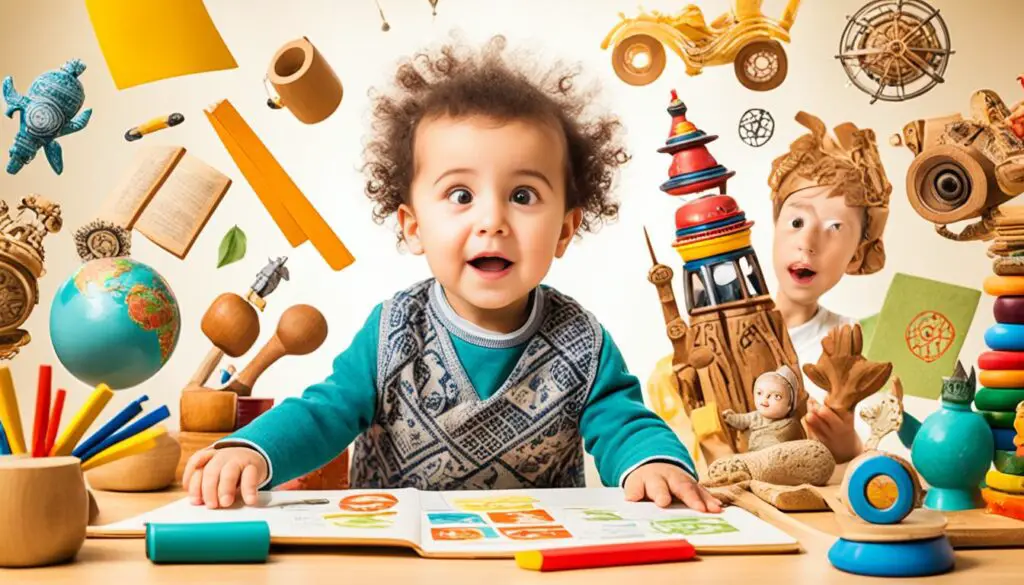
Cultural Parenting Styles: Diverse Approaches to Raising Children
Cultural parenting styles encompass a wide array of beliefs, values, and practices that shape the way parents raise their children. These styles reflect the diversity and richness of different cultures worldwide, providing unique insights into how societies prioritize and nurture their future generations. Understanding cultural parenting styles is crucial for appreciating the diverse approaches to raising children across various cultures.
Key Takeaways:
- Cultural parenting styles vary across different cultures and reflect unique beliefs and practices.
- Each culture has its own approaches to effective parenting, which can impact child development.
- Nurturing cultural identity in parenting contributes to a positive self-concept and appreciation of diversity.
- Understanding cultural parenting styles helps foster cross-cultural understanding and respect.
- Appreciating the diversity of cultural parenting styles can enrich parenting practices and promote inclusive societies.
The Impact of Cultural Parenting Styles on Child Development
Cultural parenting styles have a profound impact on child development. Each culture has its own beliefs about what constitutes effective parenting, and these beliefs shape the strategies and techniques used by parents.
In collectivistic cultures, such as many Asian cultures, the emphasis is on interdependence, respect for authority, and group harmony. Children are taught to prioritize the needs of the group and conform to societal expectations. This parenting approach fosters strong social skills, teamwork, and respect for authority figures.
In contrast, individualistic cultures, such as those in Western societies, prioritize independence, self-expression, and personal achievement. Parents encourage their children to explore their individuality, make their own decisions, and advocate for themselves. This style of parenting promotes self-esteem, autonomy, and creativity.
The diverse approaches to parenting deeply influence various aspects of child development. For example, children raised in collectivistic cultures tend to excel in cooperative tasks, have strong interpersonal skills, and place a high value on maintaining group harmony. On the other hand, children raised in individualistic cultures may demonstrate higher levels of assertiveness, independence, and innovation.
Children raised in collectivistic cultures tend to excel in cooperative tasks, have strong interpersonal skills, and place a high value on maintaining group harmony.
Children raised in individualistic cultures may demonstrate higher levels of assertiveness, independence, and innovation.
Additionally, cultural parenting styles have implications for academic achievement. In cultures that prioritize academic success, parents may invest significant time and resources into their children’s education, placing a strong emphasis on discipline and academic performance. This can lead to high levels of academic achievement and career success.
It is important to recognize and appreciate the diversity of cultural parenting styles and the unique contributions they make to child development. By understanding the impact of cultural parenting practices, we can promote cross-cultural understanding, respect, and effective support for children from different backgrounds.

| Cultural Parenting Styles | Impact on Child Development |
|---|---|
| Collectivistic | Strong social skills, cooperation, respect for authority |
| Individualistic | Independence, self-expression, creativity |
Nurturing Cultural Identity in Parenting
When it comes to cultural parenting styles, one vital aspect is the nurturing of cultural identity. As parents, we have a significant role to play in instilling a sense of cultural heritage and belonging in our children. We achieve this by teaching them about our cultural traditions, customs, and language, while also encouraging their participation in cultural activities and celebrations. By fostering a strong sense of cultural identity, we not only help our children develop a positive self-concept, but also maintain a connection to their roots and heritage.
Cultural identity serves as a foundation for our children to understand and appreciate their own culture, as well as respect and embrace diversity in others. It is through nurturing their cultural identity that we equip them with the necessary tools to navigate and contribute to a multicultural society. By understanding their cultural heritage, our children develop a stronger sense of self, allowing them to confidently interact with individuals from different backgrounds.
As parents, we can employ various strategies to nurture our children’s cultural identity. This can involve sharing stories and experiences from our own cultural backgrounds, exposing them to diverse forms of art and literature, and encouraging them to explore their heritage through travel or by participating in cultural organizations. By doing so, we create opportunities for our children to learn and grow, fostering a deep appreciation for their own cultural identity and the cultural identities of others.
Nurturing cultural identity in parenting is a powerful way to help our children develop into individuals who are proud of their heritage and respectful of others’ cultures. By passing down the knowledge and traditions of our ancestors, we contribute to the preservation of diverse cultural practices and the building of a more inclusive society.
FAQ
What are cultural parenting styles?
Cultural parenting styles encompass a range of beliefs, values, and practices that shape how parents raise their children, reflecting the diverse approaches found in different cultures around the world.
How do cultural parenting styles impact child development?
Cultural parenting styles have a profound impact on child development as each culture has its own beliefs about effective parenting, which influence the strategies and techniques used by parents. These different approaches can influence various aspects of child development, including social skills, self-esteem, and academic performance.
What is the importance of nurturing cultural identity in parenting?
Nurturing cultural identity is important in parenting as it helps instill a sense of cultural heritage and belonging in children. By teaching cultural traditions, customs, and language, and encouraging participation in cultural activities and celebrations, parents help children develop a positive self-concept and maintain a connection to their roots and heritage.